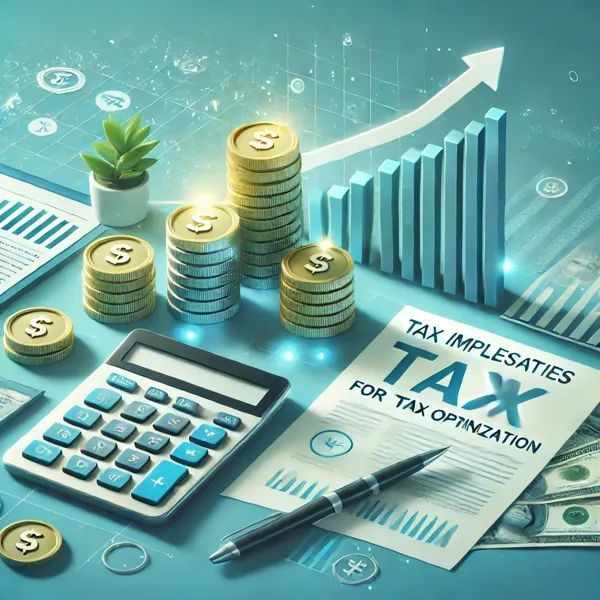
Cryptocurrency is no longer a digital experimental object but a mainstream field of investment, changing the way people perceive the creation of wealth. However, with the maturity of the market, it becomes involved in the relationship with regulation and taxation. The path between first involvement and actual profit is usually a win till the tax period comes. Large numbers of traders are finding out that market volatility is not the greatest surprise but the difficulty in comprehending the taxation and reporting of profits.
The increasing amount of digital assets has compelled tax authorities across the world to keep up with the innovation. Previously, investors thought of crypto as an escape through a borderless world of traditional finance, but now they can notice that they are obliged to pay taxes. Whether you sell to get money in the short term or you hold to gain in the long term, the question that reverberates through all the talks is just one thing; how much of the profits which you make is really yours?
Learning the Framework of Crypto Taxation
It is first important to know the basis of what is the tax on crypto gains before addressing the specifics. The majority of jurisdictions view cryptocurrency as a property, as opposed to currency. It is so that every time you sell, trade, or even purchase using your crypto, you might have taxable event(s). It calculates the profit or loss depending on the difference between the cost of acquisition or purchase price (cost basis) and the disposition value.
When the investors are short-term, the earnings made within a year may be classified as high income tax brackets whereas capital gains are granted to long-term investors, which are relatively lower. Nevertheless, the complexities do not end there. Other areas even cover crypto-to-crypto trades as taxable, so it makes it hard to keep tax records when dozens of deals take place within a day.
It is not only a financial requirement, but also a compliance obligation to know what is the tax on crypto gains in your country is. Investors need to learn how to operate in volatile markets and also negotiate laws that vary across borders.
The Forgotten Effect of Early Investment
The participation in the early stage is one of the most neglected factors of what is the tax on crypto gains. The high number of investors come into the market at times of market hype when tokens are cheap, and the possibility of increase appears to be endless. The people who purchased Bitcoin during its early years or were part of the initial sale of Ethereum enjoyed historic returns - and they later came under the scrutiny of the tax office.
It is simple: the cheaper you enter, the more you can make when selling. This has necessitated record-keeping as performances, wallets, and blockchain explorers are offering varying degrees of trans. The lack or the wrongness of data may lead to false reporting, and that is usually followed by punishment or inspections.
Whether there is clarity regarding what is the tax on crypto gains is not just important as far as compliance is concerned. It indicates the attitude of the regulators toward the validity of digital assets. Clear taxation recognizes the use of crypto as a serious financial tool, but not a speculative exception. To investors, this change means that responsible involvement is no longer a choice, but it is a game.
Linking Presales and Future Liabilities
No matter what is talked about tax implications, the crypto presale stage is as interesting as it can be. Such initial token sales provide investors with an opportunity to buy tokens prior to their presence in the public market, usually at a discount to their subsequent value. Presales are potentially profitable, but there are different tax implications involved which most players fail to consider.
In most cases, purchasing tokens through a crypto presale might not be taxable at the acquisition point, particularly when there is no market value available. The tax event, however, comes about when the token is transferred into tradeable status and acquires a quantifiable value. The income taxable or capital gain is then the difference between the presale acquisition cost and the sale price.
It is a dynamic that contributes to the increase in potential rewards and liabilities with early participation. Given that investors will participate in several crypto presale deals, they will have to not only diversify their portfolios but also predict their taxes. The tokens have their own tax implications based on time and it is critical to maintain sound records. The misunderstanding or overlooking of these details can lead to unwanted commitments in the future.
Conclusion
Financial responsibility is not relieved of investors by the promise of financial freedom that cryptocurrency offers. It is like knowing the market trends or charts as well as knowing what the tax on crypto gains is. The overlapping of innovation and regulation is only going to increase as digital assets become more entrenched in global finance.
Early access, like that of crypto presales, is an effective wealth-generating instrument. They, however, also cause timing, valuation, and documentation issues that may affect your tax result. An enlightened investor understands that profit is not determined by the amount earned but what has left after the commitments have been made.
Innovations of the crypto ecosystem require the mindset of inquisitiveness and vigilance. It is those who will succeed in this new financial age who do not rush into the market without realizing that there is more than merely prices which should be considered.


Write a comment ...